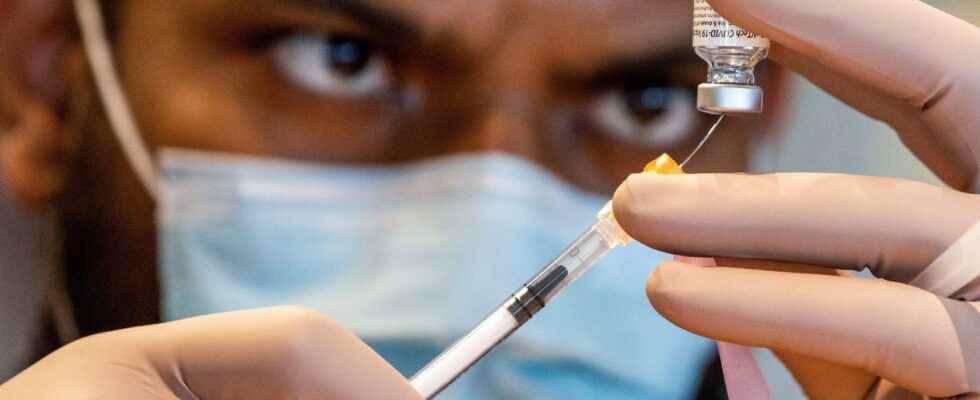Content item
MARIA TOEWS
Sentinel-Review
Advertisement
This advertisement has not loaded yet, but your article continues below.
Content item
As COVID-related hospitalizations surge in the Oxford and Elgin counties region, Southwestern public health officials are urging residents to get fully vaccinated – and boosted – as possible.
On Thursday, there were 47 people hospitalized with the virus in the region, including eight patients who were being treated in intensive care. This was a sharp increase from last week’s numbers and a significant jump from the 27 in hospital on Tuesday.
“This was due to some issues around timing and data reporting. We have been underreporting hospitalizations recently,” said Dr. Joyce Lock, the medical officer of health.
“Since this time last week, the number of active cases in our region has dropped from 1,300 cases to 880 cases. While this does underrepresent the true number of infections in this region, this is a step in the right direction and for that we are thankful.”
While heartened by the declining case numbers, public health officials still want local residents to get a third jab, citing the protection it affords to breakthrough cases. These breakthrough cases – COVID-19 infections in vaccinated individuals – are generally much milder in patients who have been boosted, officials said.
“As you know Omicron has led to breakthrough cases in people with one, two and even three doses of COVID-19 vaccine. However, the good news is that these vaccines continue to greatly reduce our risk of serious illness, hospitalization and death,” Lock said.
Advertisement
This advertisement has not loaded yet, but your article continues below.
Content item
The rate of hospitalizations in the region for its unvaccinated are 80.9 people out of 100,000 while only 28.4 vaccinated people out of 100,000 end up in care.
For unvaccinated individuals, it’s also much like their symptoms will be severe, Lock said.
“We are all very encouraged that the Omicron variant. Although it is highly transmissible in general, (it) has caused milder disease in those who are vaccinated. Those who are unvaccinated can still get very severe disease, as you had with the very original variant.”
Because of this, Lock said “third or booster doses are critically important” to continue reducing severe symptoms of COVID.
“I am very concerned about the number of residents in the area who have not yet come in for their booster doses. According to our records, we have more than 26,000 residents over the age of 50 who are double vaccinated but have not yet received that important booster dose.”
To help encourage third jabs, two new pop-up vaccine clinics are scheduled in the coming days. The first one is slated for Jan. 21 at the Ontario Police College in Aylmer while the second one is set for Jan. 25 at the Tillsonburg Community Centre.
While 1,100 appointments have been booked at these clinics, there are “at least a thousand (slots) still available to book,” Lock said.
Although there are many reasons for people not taking booster shots, Lock noted some hesitancy is due to people wanting the Pfizer vaccine rather than a similar Moderna dose. Some residents, Lock said, are waiting for more Pfizer doses to become available.
Advertisement
This advertisement has not loaded yet, but your article continues below.
Content item
“Our recommendation to everybody, as always, is that Omicron is out there right now. It is very transmissible, so it’s best to get whatever vaccine is available for you and to get your booster sooner than waiting for the Pfizer.”
She estimated the supply for Pfizer won’t substantially for another two to three weeks. Because the Moderna vaccine isn’t recommended for patients younger than 30, health units across the province have been reserving their Pfizer doses for that age group.
“Don’t just leave it to fate and try to get infected,” Lock added. “You don’t know how your body will respond and you could subject yourself to serious illness. You may even end up hospitalized or with long COVID syndrome. It’s much better to choose immunity through vaccination.”
People who have recently contracted COVID-19 are still able to get a booster dose after their self-isolation period ends and they are feeling well again. Public health recommends they wait approximately 30 days after their infection.
Despite the recent decline in cases from an early January peak, there is still no definite timeline as to when the region will get over this wave of the virus, Lock said.
Despite the “big jump about a month ago” and the “slowly rising levels” of COVID cases, the numbers have recently begun to stay more stable, Lock noted.
“Once our health system is able to cope with a low but steady state of people getting ill, then the more we can open up,” she said.
Lock said there’s no way to predict how many more waves of COVID variants there will be but, once people gain more immunity through a native infection or vaccines, the illness will become less severe over time and can start to be treated more like endemic diseases, such as the flu.
“We do know from history that with pandemics – with any new organism – that you will have new waves of episodes where the cases go up and down again and that may occur for a number of years after the start of the pandemic. We’re in one of those waves right now, so I do think people need to prepare.”
